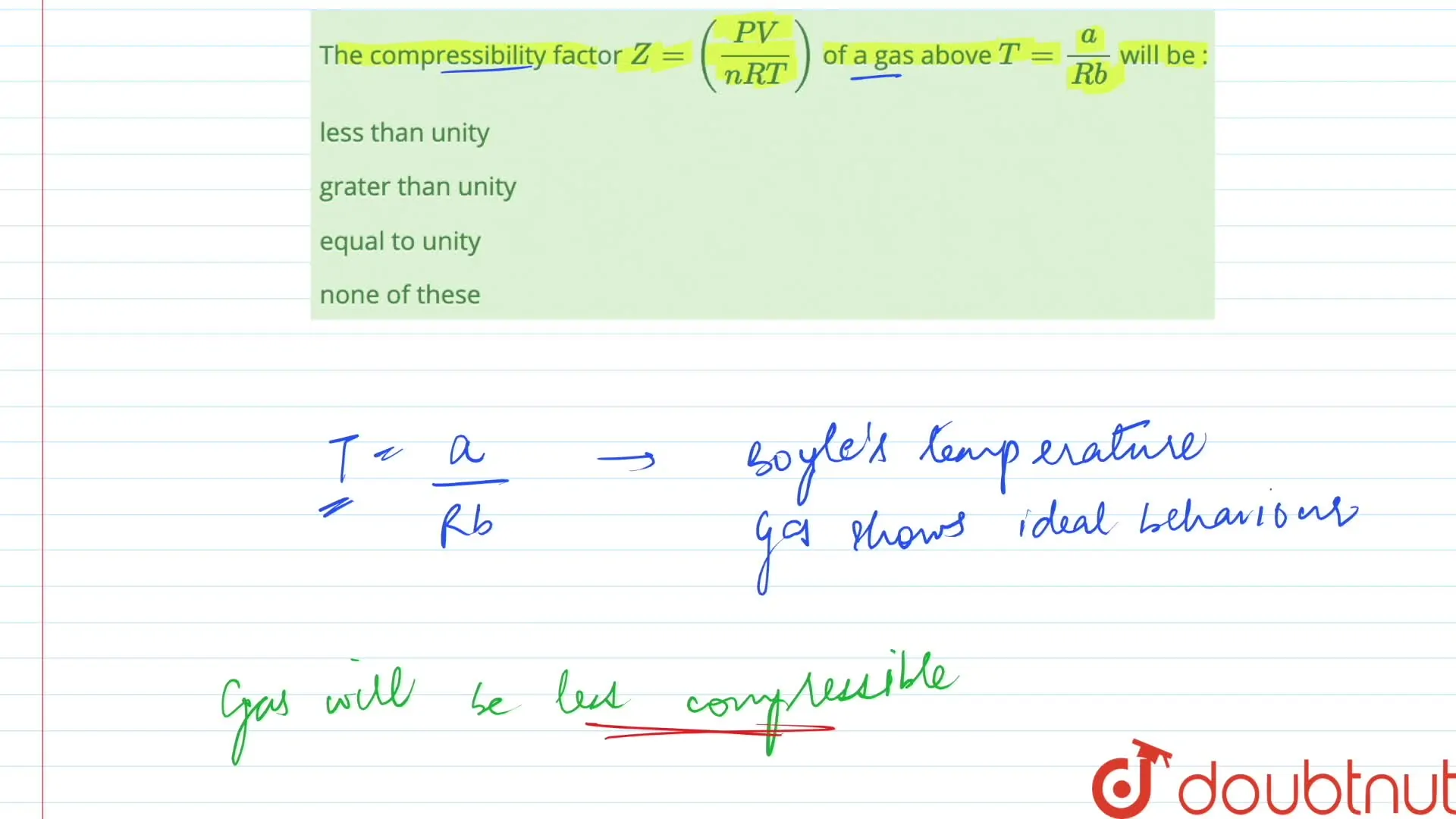The compressibility factor Z=(PVnRT) of a gas above T=aRb will be :
A
less than unity
B
grater than unity
C
equal to unity
D
none of these
Video Solution
Text Solution
The correct Answer is:B
Above Boyle's temperature (Tb):Z>1
|
Updated on:21/07/2023
Similar Questions
Define compressibility factor of a gas.
View SolutionThe compressibility factor Z for the gas is given by
View SolutionThe compressibility factor for an ideal gas is
View SolutionThe compressibility factor for an ideal gas is
View SolutionThe value of compressibility factor (Z) for an ideal gas is
View SolutionThe compressibility factor for an ideal gas is
View SolutionCompressibility factor under critical state of a gas is
View SolutionCompressibility factor under critical state of a gas is
View SolutionCompressibility factor for H2 behaving as real gas is
View SolutionCompressibility factor for H2 behaving as real gas is
View Solution


